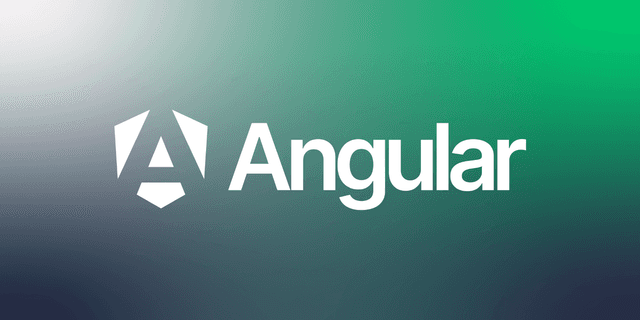
Ruby Interview Questions
Ruby is a dynamic programming language that is highly popular among developers due to its clean syntax and object-oriented structure. Especially when combined with the Ruby on Rails framework, it significantly simplifies the web application development process. For this reason, Ruby interview questions are crucial for both backend and full-stack positions.
In this guide, we’ve compiled a list of Ruby developer interview questions and answers tailored for both beginners and senior-level candidates. You’ll find detailed questions related to Ruby’s object-oriented programming (OOP) structure, performance tuning, Rails framework details, and backend development experience.
1. What is Ruby and What are Its Key Features?
Ruby is an open-source, dynamic programming language developed by Japanese programmer Yukihiro "Matz" Matsumoto. It supports both object-oriented and functional programming paradigms.
Key features of Ruby:
- Everything is an object
- Clean and readable syntax
- Dynamically typed
- Supports blocks, lambdas, and procs for functional programming
puts "Hello World!"
This question is typically one of the first in Ruby interviews and is used to assess the candidate’s understanding of the language’s core philosophy.
2. What is the Difference Between Ruby and Ruby on Rails?
Ruby is a programming language, while Ruby on Rails (RoR) is a web application framework built using Ruby. Rails follows the MVC (Model-View-Controller) architecture and enables rapid development of CRUD operations.
Rails Controller Example:
class UsersController < ApplicationController
def index
@users = User.all
end
end
This is a frequently asked question in Ruby on Rails interview sections.
3. How are Classes and Objects Defined in Ruby?
Ruby is fully object-oriented, and everything in Ruby is an object. Class definitions are straightforward.
class Car
def initialize(brand)
@brand = brand
enddef info
"Car brand: #{@brand}"
end
endvehicle = Car.new("Toyota")
puts vehicle.info
Such questions are commonly found in Ruby OOP interview question sets, assessing a candidate’s grasp of class structure and encapsulation.
4. What are Blocks, Lambdas, and Procs in Ruby?
These are structures that support functional programming in Ruby and are used similarly to functions.
- Block: Passed to methods as temporary chunks of code.
- Proc: Created with Proc.new and can be called multiple times.
- Lambda: Defined with -> or lambda, enforces strict argument checking.
def operation
yield if block_given?
endoperation { puts "Operation executed" }
greet = ->(name) { "Hello #{name}" }
puts greet.call("Ali")
5. How Does Exception Handling Work in Ruby?
Ruby uses the begin-rescue block to handle exceptions. The ensure block defines code that will run regardless of whether an exception was raised.
begin
10 / 0
rescue ZeroDivisionError => e
puts "Error: #{e.message}"
ensure
puts "Operation completed."
end
This is a very common question in Ruby interview question lists.
6. What is a Migration in Ruby on Rails?
A migration is a way to alter the database schema using Ruby code. It is used to create tables, add or remove fields, and manage schema changes.
class CreateUsers < ActiveRecord::Migration[6.0]
def change
create_table :users do |t|
t.string :name
t.timestamps
end
end
end
This technical question frequently appears in Ruby on Rails interviews.
7. What are Some Performance Optimization Techniques in Ruby?
To solve performance issues:
- Avoid unnecessary object creation
- Prevent N+1 queries
- Use memoization
- Follow the DRY principle (Don't Repeat Yourself)
def slow_function
@result ||= expensive_operation
end
Such questions are typically aimed at experienced candidates in Ruby performance tuning interviews.
8. What is a Module in Ruby and How is it used?
Modules are used to group reusable methods that can be included in multiple classes.
module Greetable
def greet
"Hello!"
end
endclass Person
include Greetable
endp = Person.new
puts p.greet
This kind of question is common in Ruby backend interview sections.
9. Can you Develop APIs with Ruby?
Yes, you can build RESTful APIs in Ruby using frameworks like Sinatra, Grape, or Rails. Rails allows for JSON responses that can serve mobile or frontend applications.
class Api::UsersController < ApplicationController
def index
render json: User.all
end
end
10. What is Expected in Senior-Level Ruby Interview Questions?
Senior Ruby developer interviews typically focus on design patterns, test writing, performance tuning, and code scalability.
Common topics include:
- SOLID principles
- Active Record vs Repository pattern
- Background jobs (Sidekiq, Resque)
- Caching strategies (Redis)
- Writing tests with RSpec
If you're preparing for Ruby interviews, it’s crucial to understand not just the syntax, but also the principles of OOP, the Rails framework, performance techniques, and real-world application development.
Want to level up your skills and connect with other professionals in the field? Techcareer.net provides carefully crafted interview guides and comprehensive resources to help you stand out in your next interview!
You can also improve your Ruby skills by joining Techcareer.net’s training programs and explore job listings to discover new career opportunities.
Sign up now and take your career to the next level with Techcareer.net! 🚀
Our free courses are waiting for you.
You can discover the courses that suits you, prepared by expert instructor in their fields, and start the courses right away. Start exploring our courses without any time constraints or fees.



